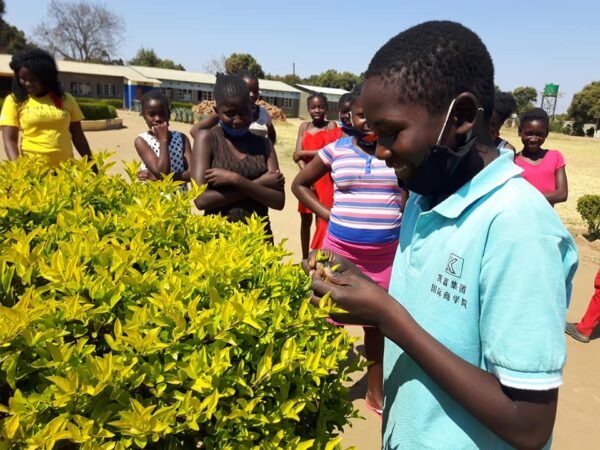
ORGANIZATION STORY
We decided to tell our authentic story differently by focusing on foundation inspiration and the collective journey since the formation of the organization. The aim is to inspire other community and world change makers who are still in their infancy stages in pursuing their visions for the common good. We are telling our story to enlighten that every pursuant to a vision may face barriers, challenges, discouragement and frustrations which should not easily deter them from pursuing their visions. Instead they should do lots of research, learning, listening and embrace appropriate and key values which shall propel them upwards and forward, and make them stand out as unique, worthy of trust and support from stakeholders and potential supporters and donors. We are still a growing NGO with strong passion, commitment to learning and improvement.
ORGANIZATION STORY
ReachAll is a Non-Governmental Organization founded in 2011 and later registered on 17th January 2013. The organization was established to make differences through advocacy, partnerships and service delivery according to our four thematic areas which are Education, Economic Empowerment, Health, and Water & Environment in schools and communities in Zambia. We target Rights Holders regardless of their race, tribe, religious and political affiliations. Our work is entirely for public benefit and charity based according to our registration mandate. We believe in inclusion and hence we also focus on children and adults with disabilities and special needs.
The organization journey has been a rough one with initial challenges due to lack of trust, confidence and acceptance from various stakeholders (e.g. communities, development actors) as they were not sure about the genuineness, passion and seriousness of the organization in its mandate. Some thought that ReachAll could be one of those new NGOs who were interested only in raising resources for self gain and thereafter disappeared. During our interactions with various stakeholders we received such useful feedback, stakeholders’ fears and their lack of trust and confidence in the new organization due to their past experiences and disappointments. Having this huge challenge ahead of us, we were not ready to give up on the organization vision but we strategized on how to gain local stakeholders’ trust and confidence in the organization. We realized that one misdeed by one entity may affect not only that entity but other entities later. We decided to self introspect (self evaluation) and also looked at our values and identified key values (e.g. accountability, transparency and honest) which were needed most for us to gain stakeholders’ confidence in the organization.
With limited resources we lived and talked about these values until stakeholders’ trust and confidence levels in the organization started rising. We started noticing increase in local stakeholders’ (e.g. communities) participation, their contributing ideas about how the organization could grow and we started receiving invitations by government departments and NGOs to attend various meetings at which we made more connections through participation and presentations about our work. The more we interacted with stakeholders the more the trust and confidence levels in the organization increased, and the more they liked and embraced the organization and held our hands in our journey towards our vision which was not well packaged by then. We started gaining more support locally and we received consistent encouragement. Our work and interventions started becoming easier.
The organization has grown its programming roots in communities and with various stakeholders and is now able to resolve most barriers in its work. It has good standing with the government, rights holders and other development actors as well as its current donors. The organization has been able to work with difficulty communities and community based partnerships yet it has managed to make sustainable and durable impacts.
Stakeholders have been part of our journey since inception and relationship building has been a process. This is one of the reasons, apart of project principles, which make us highly value stakeholders’ participation in our programming and governance system. We learnt that without stakeholders’ trust and confidence in the organization and participation in our programming we could not be effective in our work or grow as an organization.

Our first project was computer literacy project with support from City of Perth Lions Club of Australia who donated about more than 700 refurbished computers; some to 30 schools (20 computers per school), 10 computers to Livingstone Correctional Facility. This was about 7 to 10 shipments. Due to initial lack of stakeholders’ trust, the organization had to cover shipment and clearing costs and donated the computers to first few schools. This also contributed to our collaboration with stakeholders.Since the beginning of our computer literacy project in 2014, we have reached about 18 300 children learners in 30 schools. The organization trained some teachers in basic computer literacy and also installed Educational Resources on computers to enhance research, reading and learning in schools. This was like a door to other projects which can be read under IMPACT areas. This project was followed by our Literacy Project which was supported by Litworld (USA). We would like to recognize Litworld as our first Financial Donor in 2017.
Kindly visit Our Gallery to have an overview of our programming story.
Thank you for reading our story!
ReachAll Team
